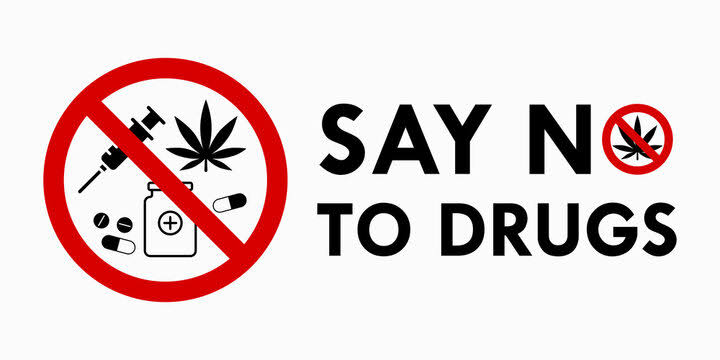Main highlights:
- What drives teens toward drug abuse.
- The things we can work out to take them out of this.
Drug abuse in teens has been known to all of us for years, Teenage years can be a time when irrational, impulsive decisions are made. Living in the now without taking into account potential implications is possible at this time of their lives where they lack the understanding to make appropriate decisions as they often go with what the societies term as cool and fit to be.
It is therefore a time when many teenagers experiment with drugs and alcohol for the first time. Before one even enters high school, the typical age of substance use initiation is between 13 and 14 years old, in the seventh and eighth grades.

What takes teens towards drugs?
In an effort to fit in:
For teenagers, it can be challenging to make friends and establish oneself at school. Teenage years are frequently accompanied by numerous insecurities, low self-esteem, and a dread of not fitting in. Many teenagers will start buying and taking drugs in order to blend in, feel “cool,” or join an older, more alluring social group.
The urge to experiment:
The brain continues to develop up until the age of 25, according to research. Adolescents are more likely to pursue risky and adventurous activities because the region of the brain that regulates logical decision-making, self-control, and judgment is the last to develop.
Alcohol and drugs are frequently simple, accessible means for teenagers to experiment, which can have a negative impact on their developing brains.
As adults, parents, or even guardians we must identify the underlying causes of drug use in teens and young adults as soon as it begins to spread. In order to prevent deep-seated drug habits later on in our children’s lives, we must take the necessary action now.
We must know that questions must be asked. We have to understand the problem at hand. We need to have some understanding of whether and how badly this issue might worsen.
It gets hard to know about somebody you care for getting involved in drug abuse and its addiction and If you have just found a teen may have a drug issue, the first thing you should do is step back and examine all of the things and situations around it.
Here we list down some pointers as to how we can prevent teenagers from developing an obsession or addiction to drugs and how we can pull them out.

Develop an effective conversation.
You and your teen will probably talk about drug and alcohol usage a lot. Pick moments when you won’t be interrupted, and put your phone away. It’s also crucial to know when to avoid engaging in discussion, for example, when you’re upset with your kid, you’re not ready to respond to their queries, or your kid is intoxicated or high.
Listen to their opinion on drug abuse-
Try to build a two-way conversation and avoid giving them lectures. Consult your teen about their opinions. Instead, pay attention to your teen’s thoughts and inquiries about drugs. Make sure your teen knows they can be completely honest with you and help them develop trust in you.
Talk about why they should avoid it-
Discuss reasons not to use drugs. Avert using scare tactics to make them believe something, going rude will only make you unapproachable to them, try having normal conversations and Stress the impact that drug use can have a toll on your teen’s priorities, including sports, driving, health, and looks.
Don’t brush your own experiences if you have any-
By sharing with them your own personal things you can get them more comfortable with confiding in yourself. Be ready to address your personal drug use if you do so. Think about how you’ll reply if your teen asks about your own drug use. Describe your decision not to use drugs if you did. If you did use drugs, explain what you learned from the experience.
Create guidelines and penalties.
“Prevention is better than cure” this universal saying goes for this too, it is also better to prevent something that might get worse once it starts to happen, and it is important to understand how can you prevent drug abuse for a teen and to prevent it you need set rules at your house,
Explain to them your family rules, such as leaving a party where drug use happens and avoiding traveling in a car with a driver who’s been using drugs. If your teen defies the rules, persistently impose punishments for breaking them, so they develop a fear that it can get them in trouble in all ways possible.

Keep them busy, active, and motivated.
All of this can lead to their bad mental health hence it is important to check on them every once in a while and see if they are doing fine, if you see them struggling with any kind of intrusive thoughts and they are not keeping well, Try to help them, make them feel better and provide them motivation, say tight words and affirm that things can be handled and they can get better.
A typical trigger that can be hard to resist is boredom — and we all experience it. When you see them having nothing planned and no desire to see friends or family, this happens to be triggered, in severe cases, this is a typical situation for people trying to reintegrate into society after receiving substance abuse treatment.
Know coping mechanisms.
Many people misuse alcohol and drugs to suppress their emotions. Learning good coping mechanisms is crucial to avoiding drug abuse for this reason. At different times in their lives, everyone experiences feelings of sadness, loneliness, isolation, shame, embarrassment, unworthiness, and other bad emotions. Feeling these emotions is very normal.
Learning how to appropriately process these emotions, which may include speaking with someone, writing in a journal, doing exercise, meditating, and other activities is the best approach to handling them. Knowing how to handle these feelings and ideas will help someone resist the need to use medications to dull them.

Maintain A Healthy, Balanced Lifestyle
Another strategy for avoiding drug and alcohol addiction is maintaining a healthy and balanced diet and engaging in some physical work or regular exercise.
People are better able to handle life’s stresses when they are in good health and active. This in turn lessens the temptation to use alcohol and drugs as a coping mechanism for stress. Regular exercise and a balanced diet help the brain produce feel-good neurotransmitters.































